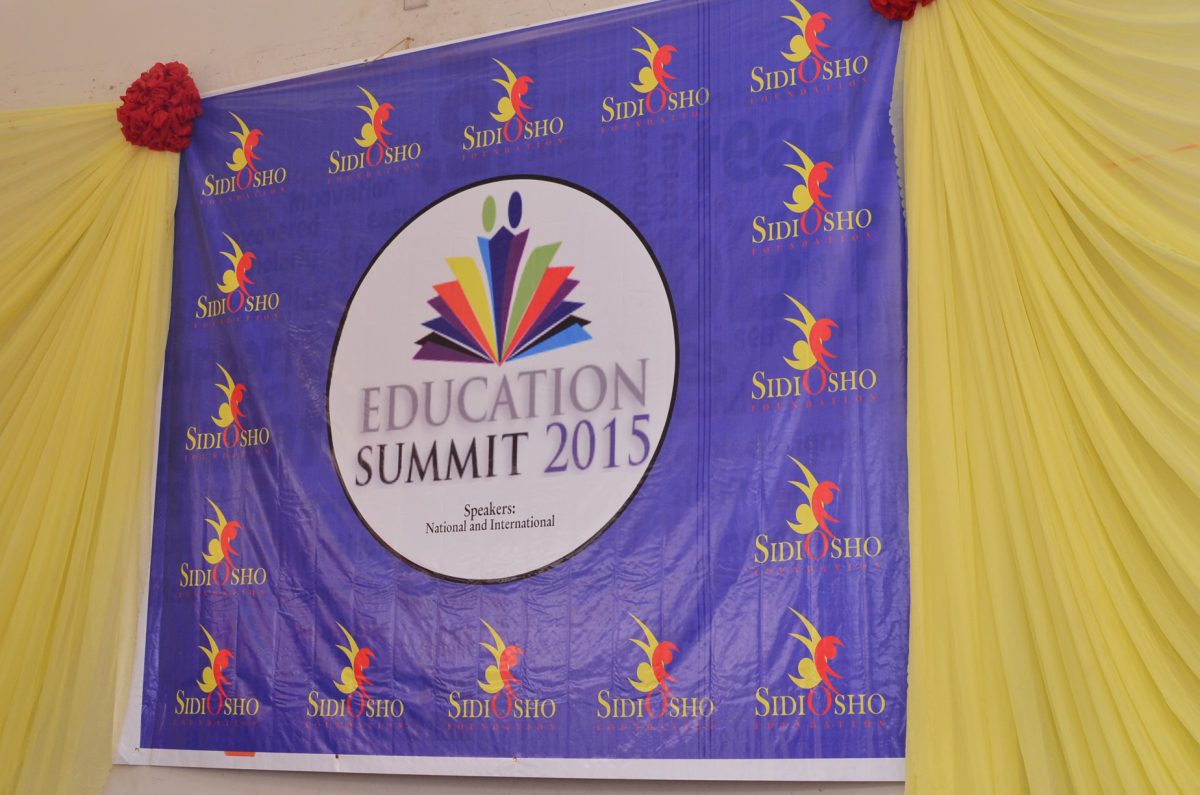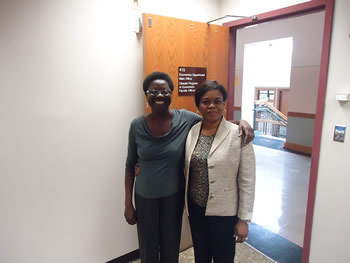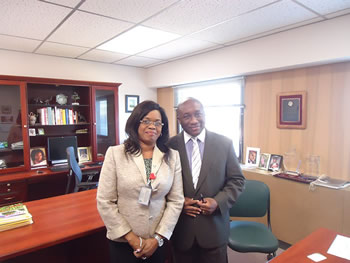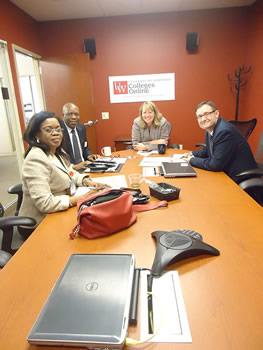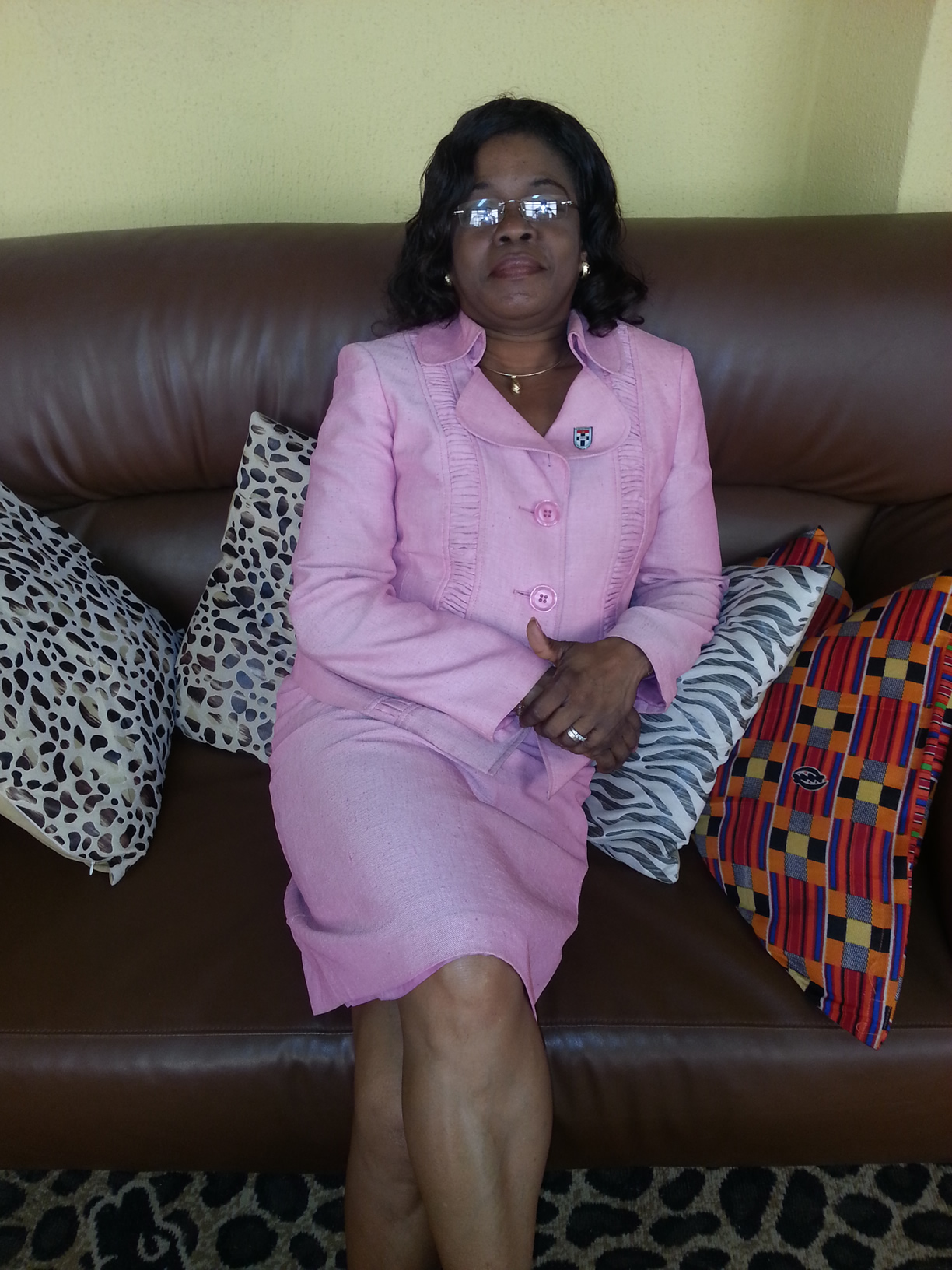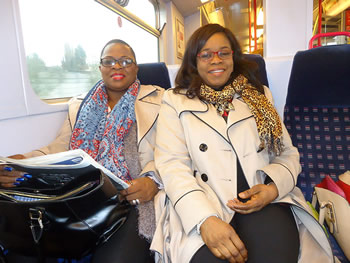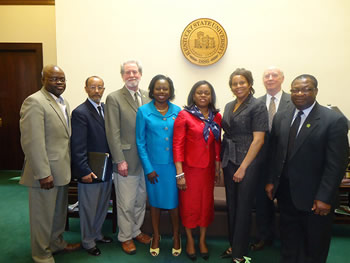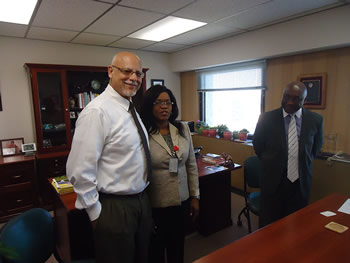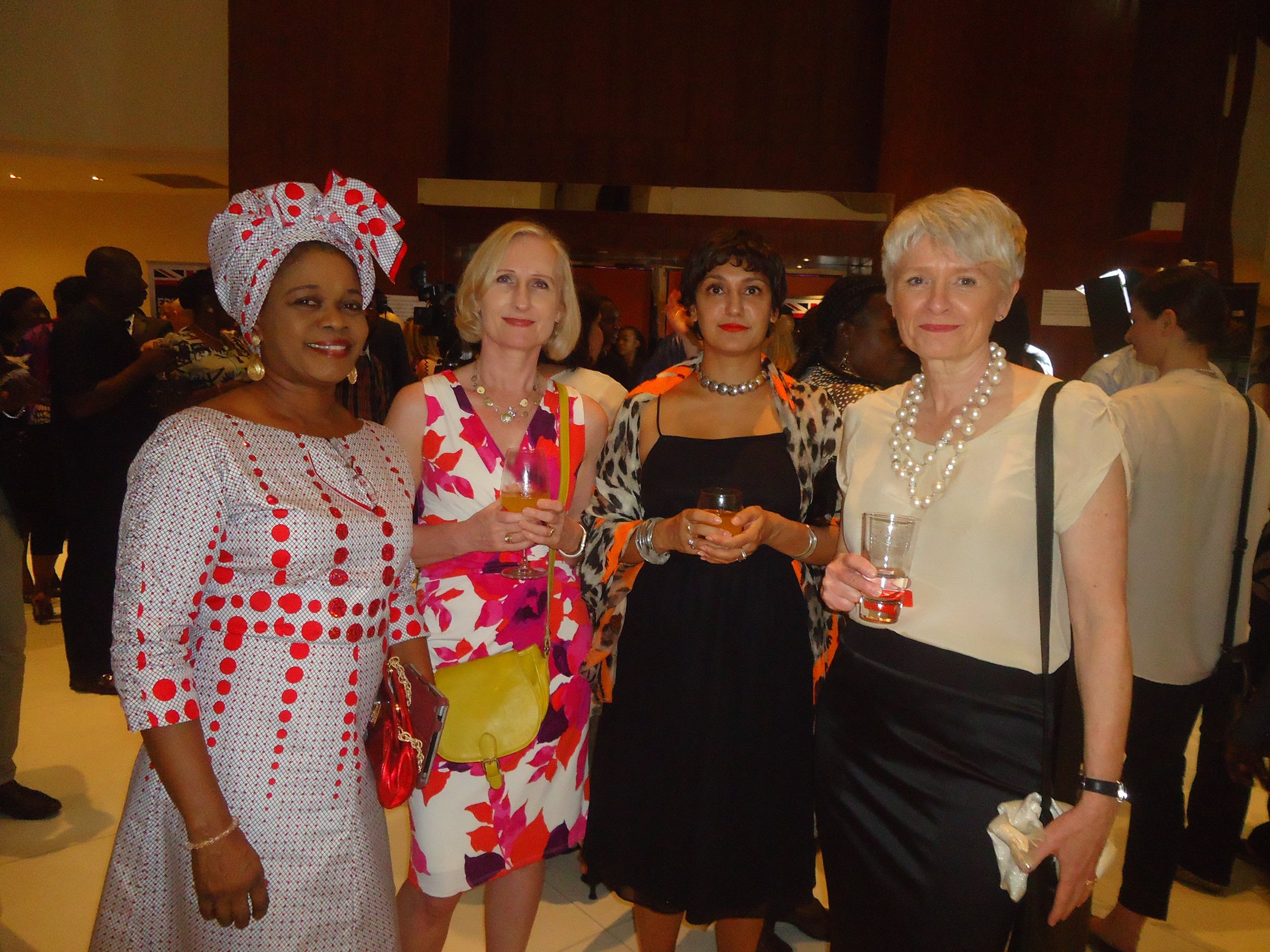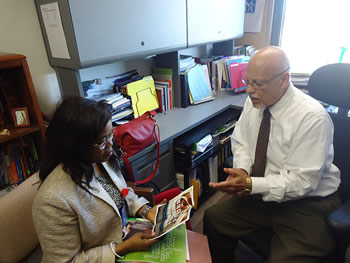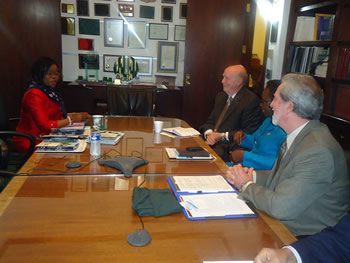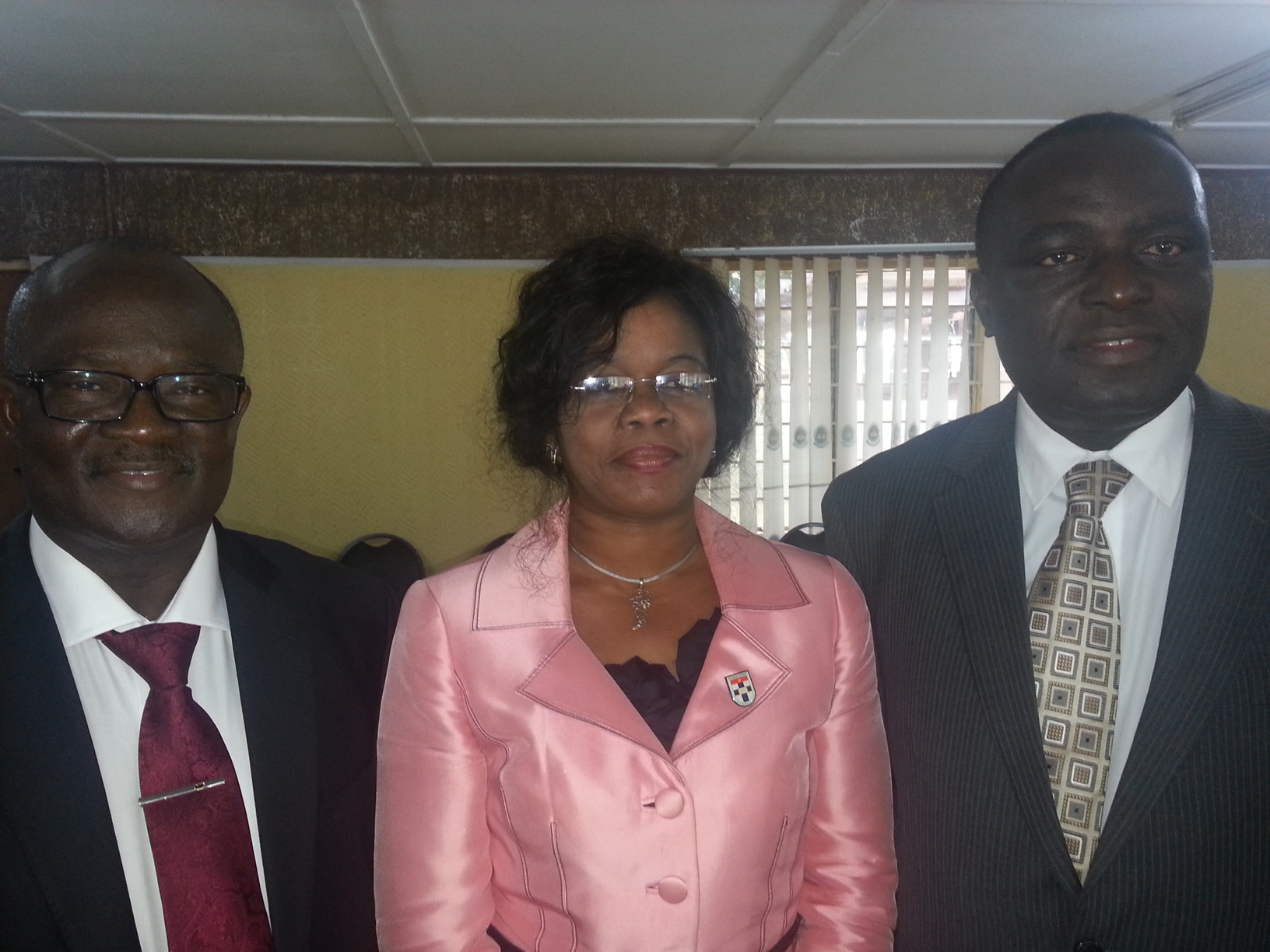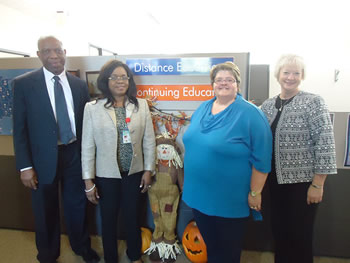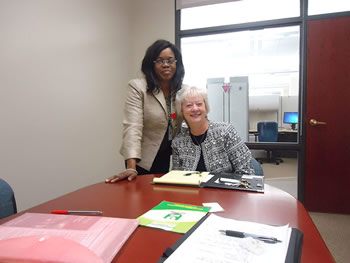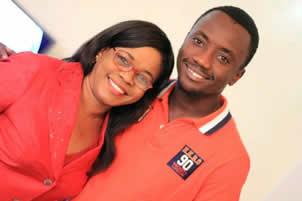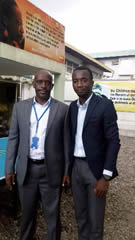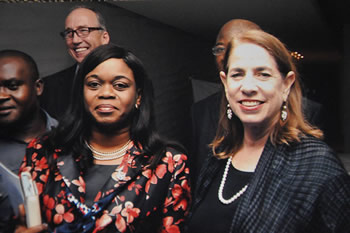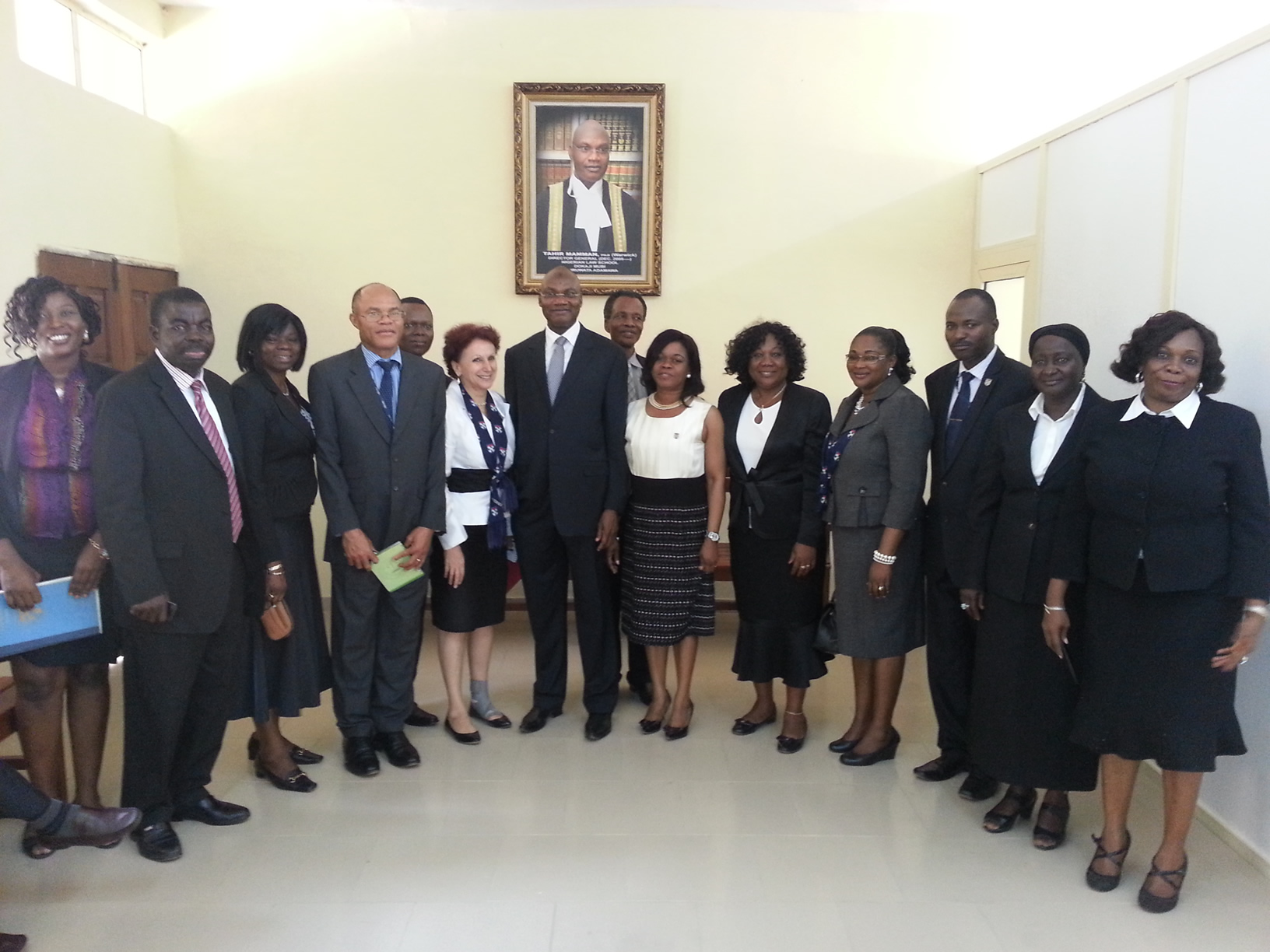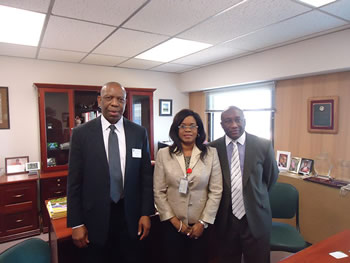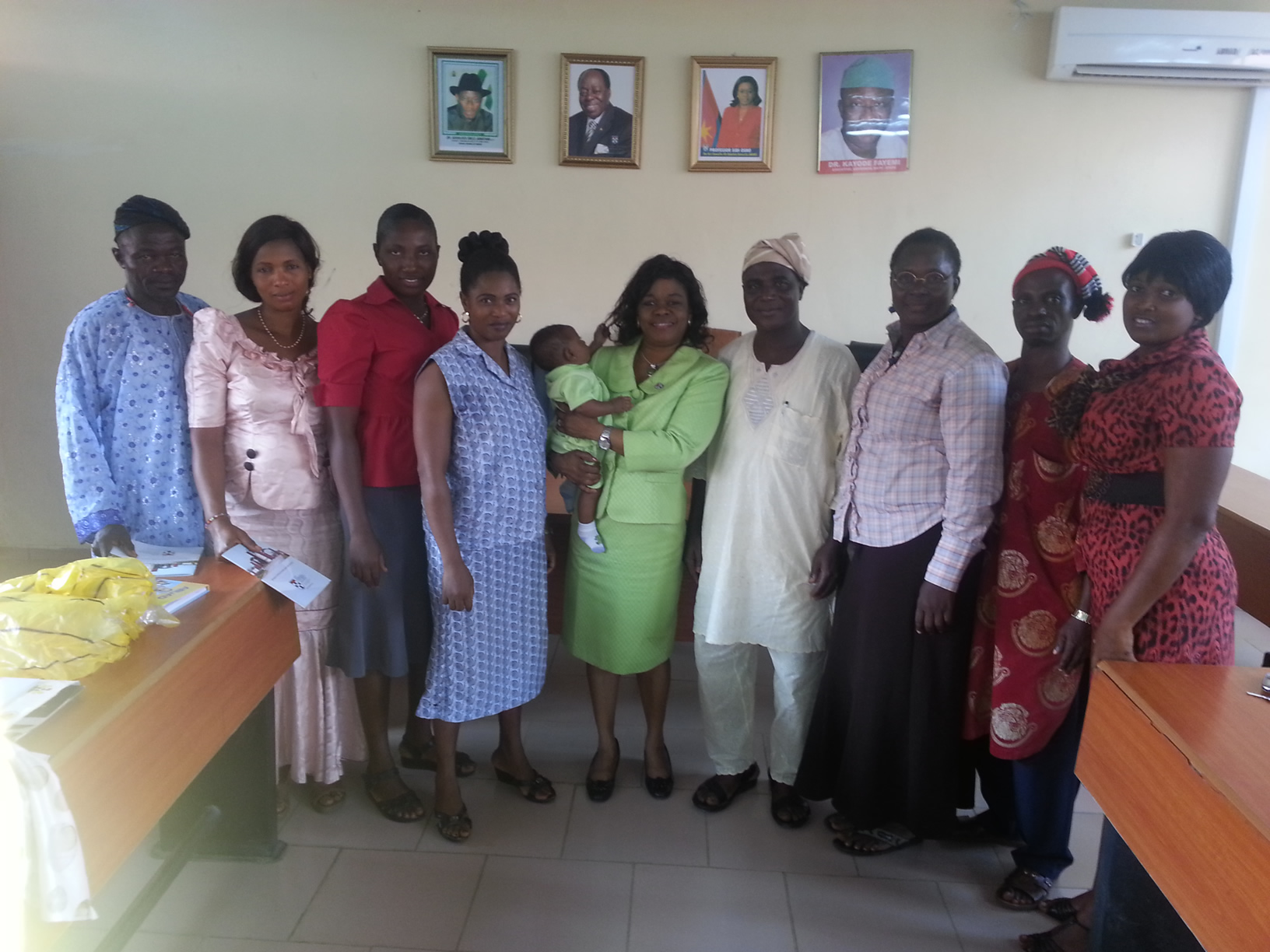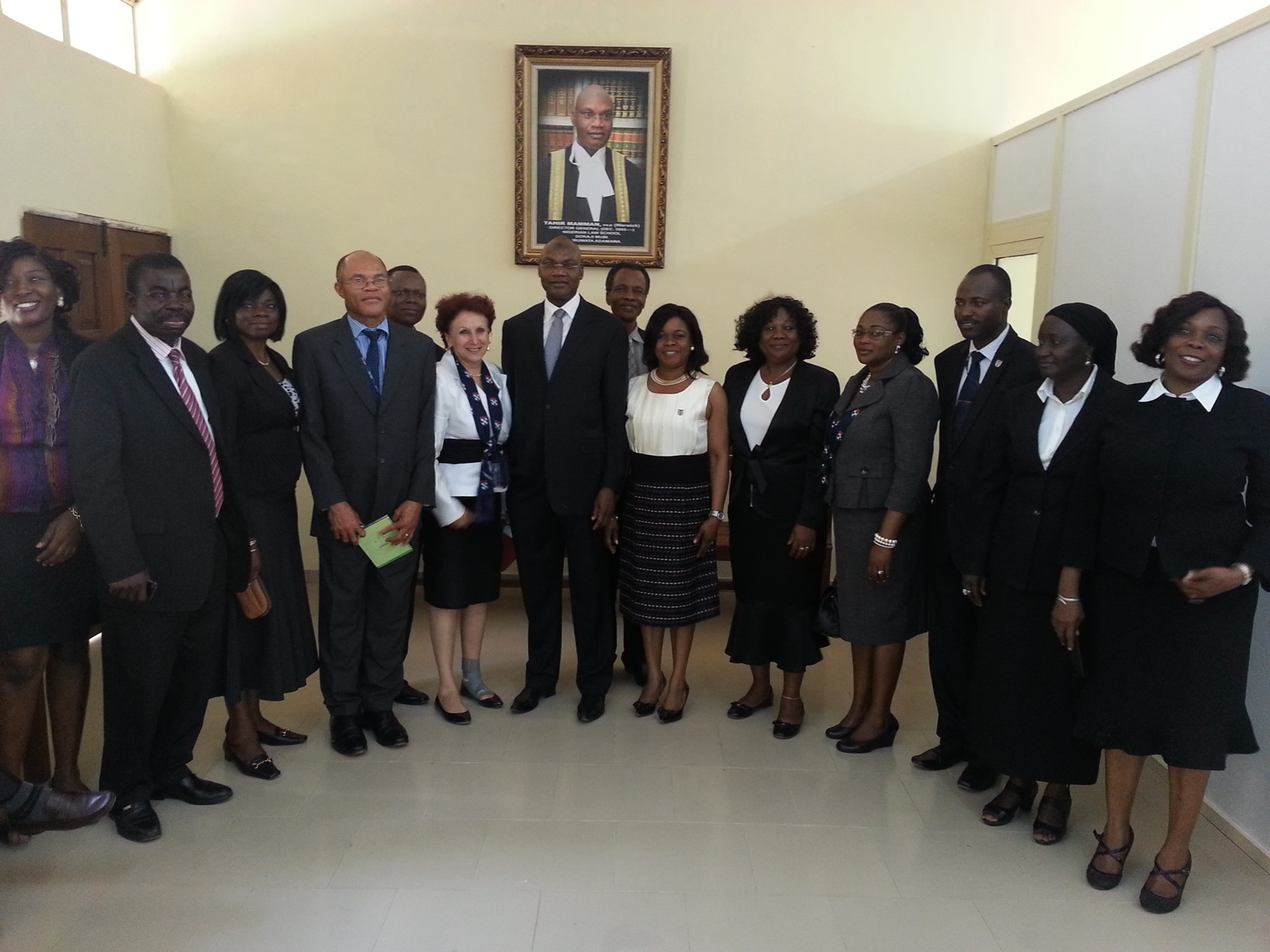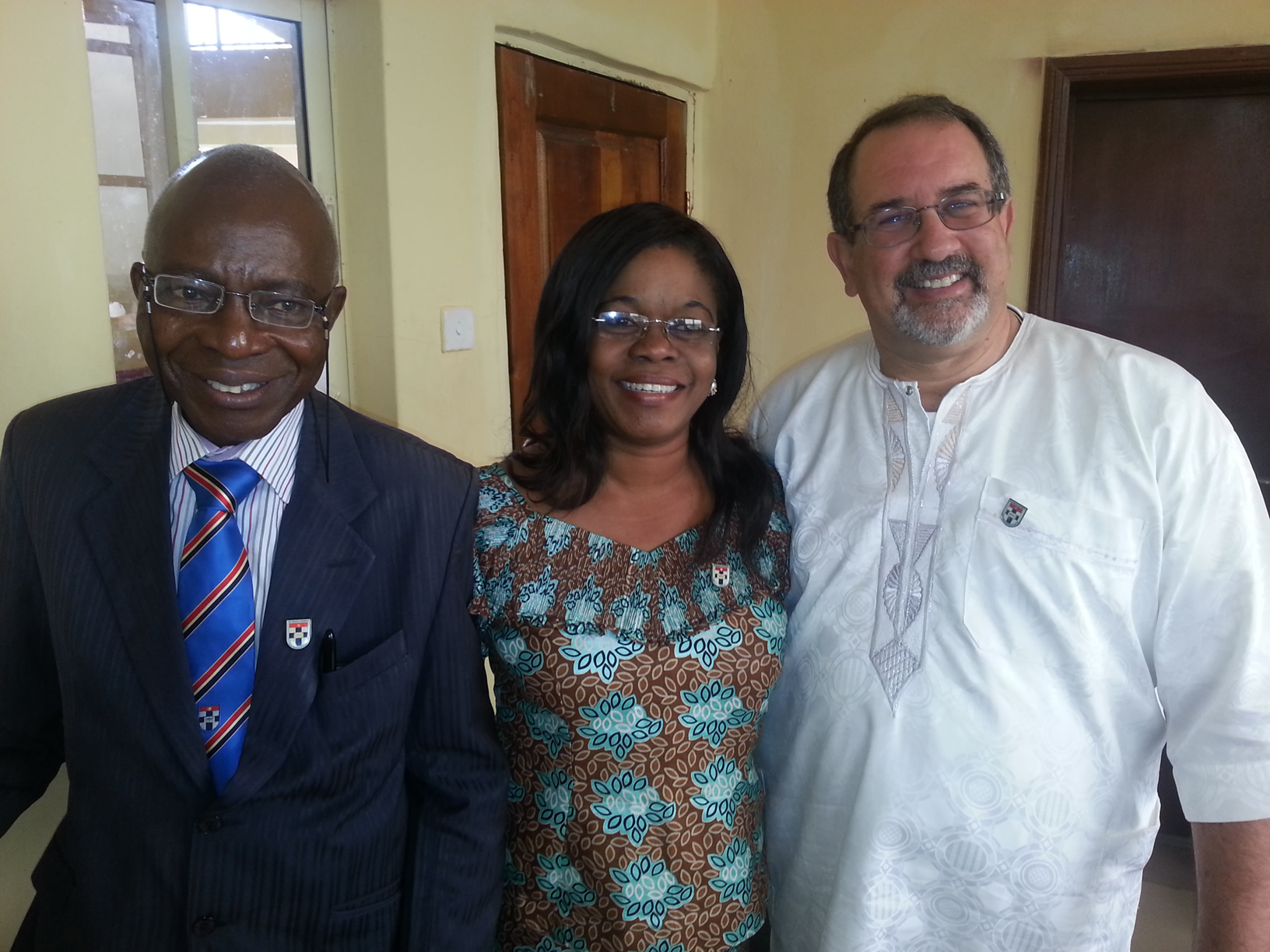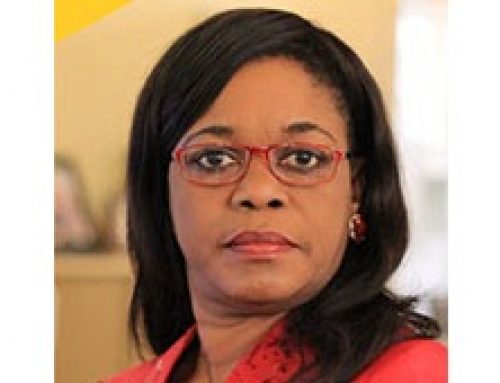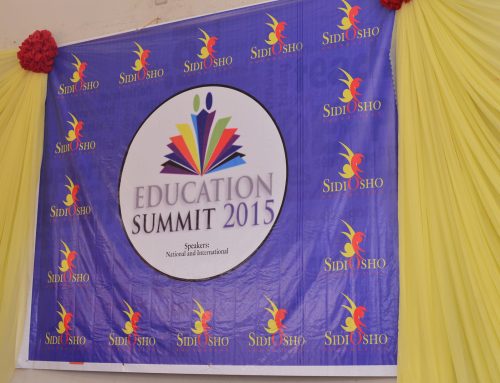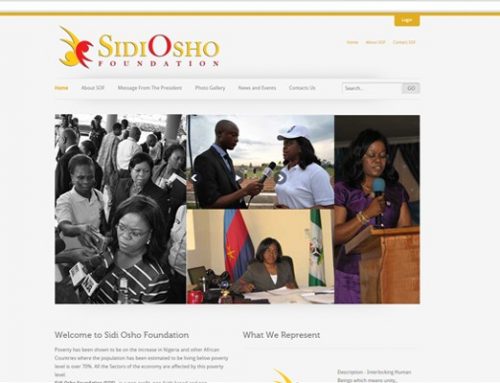The Sidi Osho Foundation (SOF) a non- for –profit and non-faith-based organization was established to  promote and contribute to human development in Africa through initiates in volunteering, education, leadership, health, youth and food security.
promote and contribute to human development in Africa through initiates in volunteering, education, leadership, health, youth and food security.
The Sidi Osho Foundation (SOF) organized an education summit on Tuesday 14th April 2014 at The Polytechnic Ibadan as requested by students and communicated to us by the Executives of the National Association of Polytechnic Students (NAPS) and the National Association of Nigerian Students (NANS) to address the value of the certificates they receive under the Nigerian Educational system and the discrimination they experience when searching for employment and other relevant issues with respect to Education in Nigeria.
The day started off with an opening prayer said by a student and a welcome address and an overview of SOF by the President of SOF, Professor Sidi Osho, Pioneer and Past Vice Chancellor of Afe Babalola University Ado Ekiti.
In her welcome address, Professor Sidi Osho spoke on how Education forms the major backbone of our society. It trains an individual, develops his reasoning power and decision making power. A well educated person does not depend on anybody else for anything. He or she develops confidence, knowledge and potential to acquire what he wants. She went on to say that this Education Summit was organized by Sidi Osho Foundation (SOF) with the hope of deliberating on pertinent issues and providing solutions to key challenges in the Education Sector in Nigeria.
Prof Sidi Osho emphasized on how the Summit will focus on the type and relevance of degrees that Polytechnics, Mono-technics and Colleges of Education and Colleges of Technology and other allied institutions, offered to over 31 million students in Nigeria receive. The Summit will also avail the students on several opportunities both locally and internationally, that will enhance their certification and improve the quality of their employability opportunities.
Professor Sidi Osho’s presentation was on “The Nigerian Educational System and the Role of the SOF” in this presentation, she addressed The National Policy on Education in Nigeria and it current 6-3-3-4 system which consists of primary, secondary and tertiary education. In this presentation, she mentioned that since the oil crisis in the eighties, government expenditure on education, which is below 10% of its overall expenditures, does not help the current struggle to improve the educational system in Nigeria. She also added that there are about 522 tertiary State and Federal and Private institutions in Nigeria including vocational enterprise institutions and over 25 Parastatals in the Federal Ministry of Education. Her presentation focused on other scholars identified challenges affecting the quality of education in Nigeria, some of which include poor funding, strike actions and demonstrations by both students and university staff, indiscipline among members of the university community, cultism, inefficiency of some of the education parastatals and Institutions and brain drain to mention a few.
Finally, she concluded that the objectives of the SOF Education Summit was to examine the challenges to driving change in educational institutions; expose innovative approaches to improving learning outcomes in our education system, establish a powerful network and data base of experts in the educational sector and highlight innovations and best practices in educational systems and deliberate and share common experiences and challenges in the implementation of education policies and reforms.
The keynote speaker Dr. Olatunde Adekola Senior Education Specialist in the Africa Regional Department of the World Bank Based in the Nigeria Country Office , a Federal Government Merit Award Scholar 1981, Honorary Fellow Science Teachers Association and a Member of the Presidential Technical Committee on Education for Vision 20-2020 spoke on Technical and Vocational Education. He pointed out that “Polytechnic, technical/ vocational education and skills development are fundamental to transformation and critical determinants of a country’s economic growth and standard of living as learning outcomes are transformed into goods and services, greater institutional capacity, a more effective public sector, a stronger civil society and a better investment climate.”
Dr. Tolu Ademujimi a Medical Doctor and the Chief Medical Director of Hope Healthcare Services Ltd, who also runs Recruitment Fairs and is a member of Center for Leadership, spoke on Personal Branding, Leadership and Character: A vital poly-cosmic blend for polytechnic students. He concentrated on the fact that polytechnic students and graduates need to be armed with multiple skills of vast dimensions to rule the society. Chief among these are immense proportions of personal branding, leadership and character in a unique mix. He asked the students questions like “Can you write a proper CV; Can you write a business proposal and a formal letter?” etc. He emphasized that these skills set you apart when employers look for staff.
Dr. Fola Rogers-Saliu, the Secretary General to the Hon. Consul, Republic of Djibouti in Nigeria and an expert in Capacity Building for Education, health and Social Care projects spoke on Women- Embracing the leader within-(Balancing career and Family). In her presentation she addressed that women naturally possessed productivity skills, are always opportunity driven, push boundaries, learn from adversities, are passionate explorers of excellence and always strive to make things better. She encouraged women at the summit to focus on these strengths in their day to day lives and academics.
Mr. Lanre Kuponiyi a Marketing Communications expert and the Chief Executive Officer / Managing Director of Brandhouse Communications Limited spoke on Self-Branding and Entrepreneurship-(A Successful Case Study) where he let the students know that he was a success story of the Polytechnic Institution. He addressed personal branding- “what people say about you when you leave the room.” Emphasizing on the fact that your character or personal brand says a lot about the type of person you will become and paves the way for you when seeking for opportunities.
Mrs. Funke Jegede, Chief Executive Officer of Ferns and Roses, an astute Administrator with emphasis on Information Management who worked in United Nations International Criminal Tribunal for Rwanda spoke on Exploring your skills and Talent called on her listeners to open their minds to all paths. Only then could they find what some of their talents are. She also asked them to continuously acquire skills and get certified in these areas as it could open doors of opportunity for them.
Mrs Christie Odesola, Chief Operating Officer and Founder of Angels Monograms with over 15 years of experience in monogram design and international trade spoke on Enterprise in Digital Art. In her presentation, she showed clips of her monogram design factory and spoke about the skills required to run a business and to be an entrepreneur. She encouraged the students to stay dedicated and to work hard to achieve their goals and dreams.
The Outcome of the SOF Education Summit The outcome of the summit recommended an Educational Policy that can be implemented. Identifying job opportunities and potential Skills to get and Keep a good job, networking by joining educational clubs, available research grants for their research, bursary /scholarship awards opportunities, National and International training and Internships, Career, Counseling, Mentoring and more Campus Education summits . Recommendations were made to State and Federal Government to the Private Sector to improve the Education Sector in Nigeria.
Dr. Joke Fashola an education specialist was rapporteur at the summit. About 20 students asked questions and shared their experiences and gave various inputs and views at the education summit. The students who expressed how important this summit was, suggested that it should hold in all Institutions and Campuses in Nigeria. The participants at the Education Summit were given free t- shirts, face caps, writing materials and free lunch and tea breaks. Over 800 students participated in the education summit and were awarded the Certificate of Participation and encouraged to fill the Education Summit questioner that documented the views of type of educational situations experienced by each student and what is preferred from the students view point.
The Summit ended with a closing prayer and group photographs.

